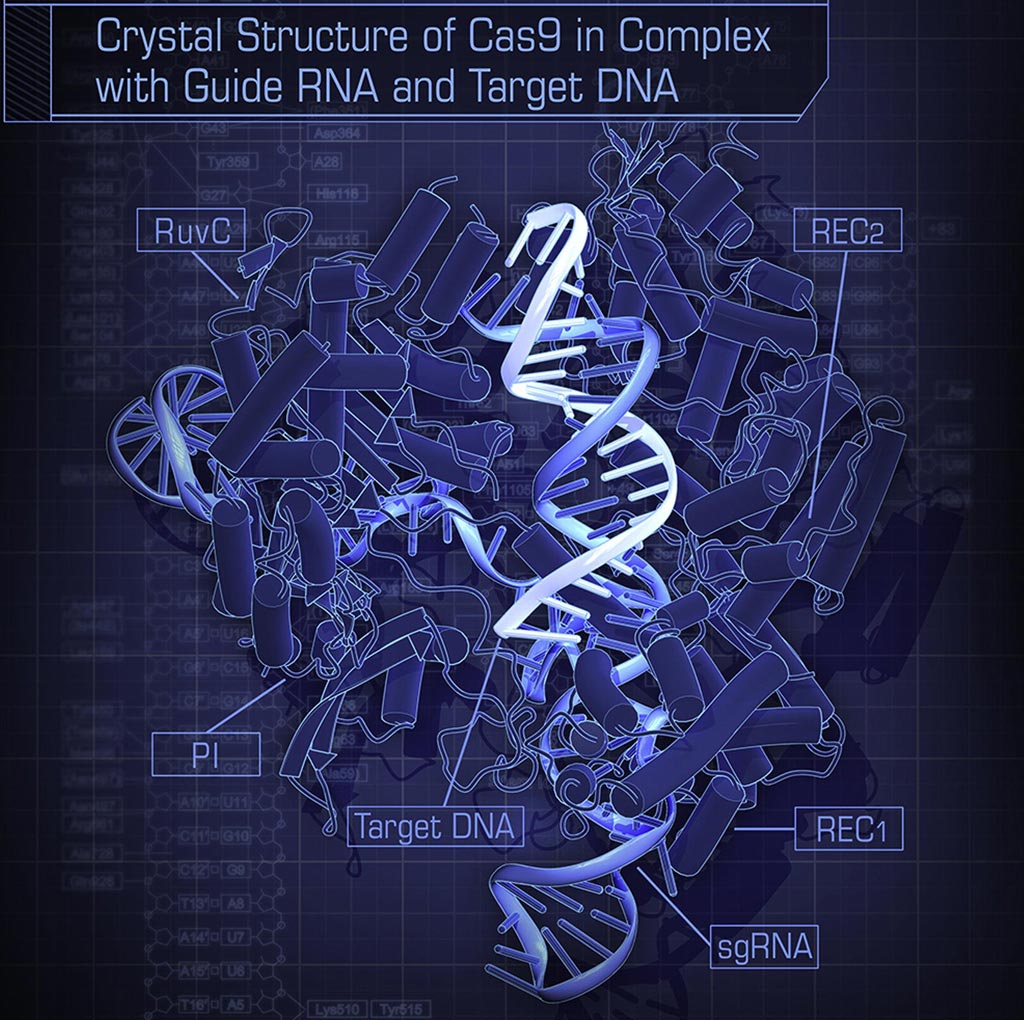Immune Sensitivity Hampers Clinical Applications of CRISPR/Cas9
By LabMedica International staff writers
Posted on 12 Nov 2018
Findings presented in a recent paper suggest that use of the CRISPR/Cas9 gene-editing tool in clinical settings may be more complicated than previously thought, since most people have a pre-existing immune sensitivity to proteins from the bacterial source of Cas9.Posted on 12 Nov 2018
CRISPR/Cas9 is regarded as the cutting edge of molecular biology technology. CRISPRs (clustered regularly interspaced short palindromic repeats) are segments of prokaryotic DNA containing short repetitions of base sequences. Each repetition is followed by short segments of "spacer DNA" from previous exposures to a bacterial virus or plasmid. Since 2013, the CRISPR/Cas9 system has been used in research for gene editing (adding, disrupting, or changing the sequence of specific genes) and gene regulation. By delivering the Cas9 enzyme and appropriate guide RNAs (sgRNAs) into a cell, the organism's genome can be cut at any desired location. The conventional CRISPR/Cas9 system from Streptococcus pyogenes is composed of two parts: the Cas9 enzyme, which cleaves the DNA molecule and specific RNA guides that shepherd the Cas9 protein to the target gene on a DNA strand.

Image: The crystal structure of S. pyogenes Cas9 in complex with sgRNA and its target DNA at 2.5-Angstrom resolution (Photo courtesy of Wikimedia Commons).
Streptococcus pyogenes is a common cause of infectious diseases in humans, but it has not been clear whether it induced a T-cell memory against the Cas9 nuclease. To address this question, investigators at Charité - Universitätsmedizin Berlin (Germany) tested healthy humans for the presence of T-cells that reacted to Cas proteins.
The investigators reported in the October 29, 2018, online edition of the journal Nature Medicine that they had detected the presence of a preexisting ubiquitous effector T-cell response directed toward the most widely used Cas9 homolog from S. pyogenes (SpCas9) within healthy humans. They characterized SpCas9-reactive T-cells within the CD4/CD8 compartments for multi-effector potency, cytotoxicity, and lineage determination. Furthermore, in-depth analysis of SpCas9-reactive T-cells revealed a high frequency of SpCas9-reactive regulatory T-cells that could mitigate SpCas9-reactive effector T-cell proliferation and function in vitro.
"The Cas9 protein, which is derived from Streptococcus bacteria, forms an integral part of the CRISPR-Cas9 system. As streptococcal infections are common in humans, we hypothesized that there might be a pre-existing immunological memory to Cas9," said senior author Dr. Michael Schmück-Henneresse, a junior group leader at Charité - Universitätsmedizin Berlin. "We have developed a test that will allow us to ensure that T-cell products can be used with confidence. It can be used to reliably determine whether the risk of an immune reaction is low."
Related Links:
Charité - Universitätsmedizin Berlin













